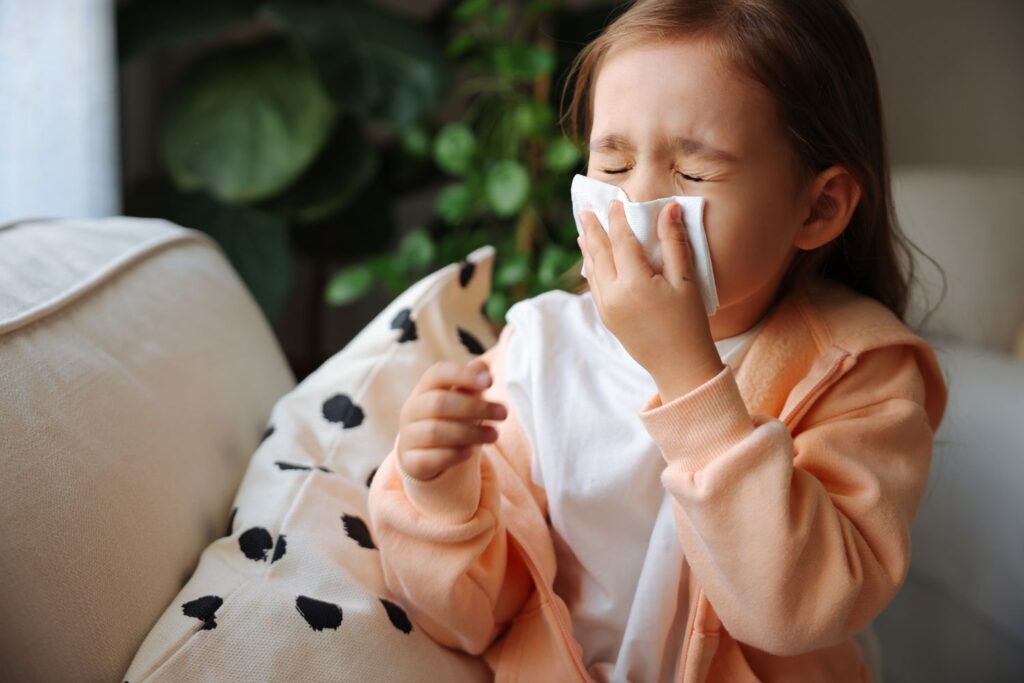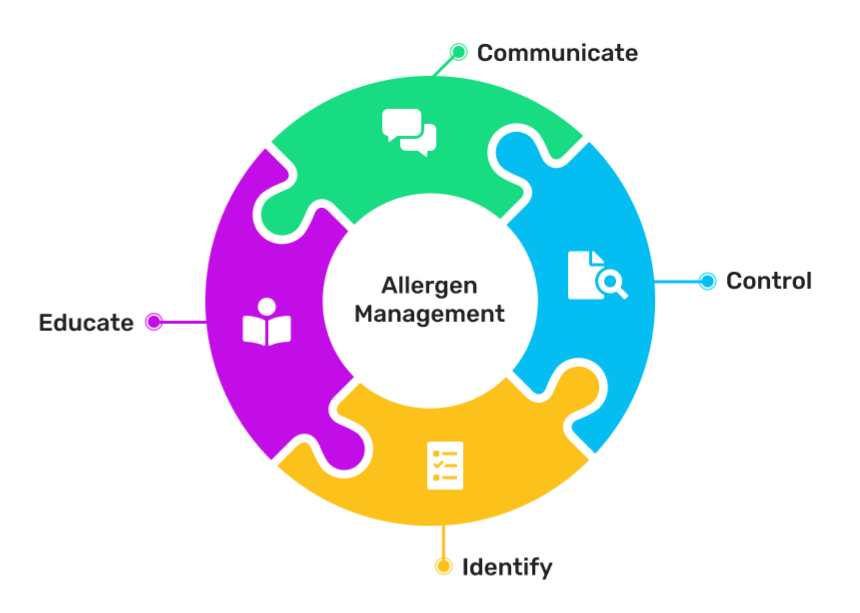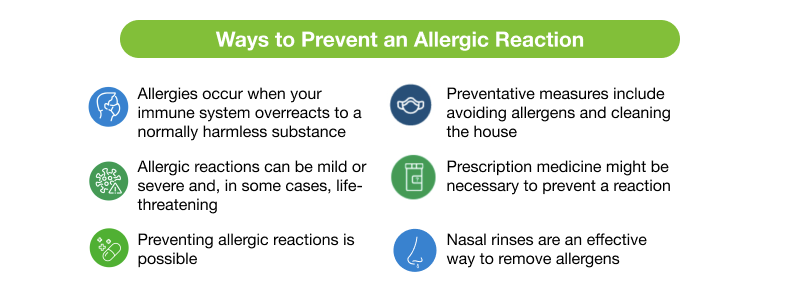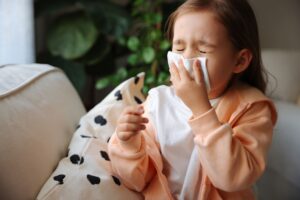In the pursuit of optimal health and well-being, the intricate tapestry of our bodies requires a comprehensive understanding of various elements, and among them, allergies play a pivotal role. This article delves into the realm of understanding allergies. Allergies, diverse in their forms and manifestations, are not mere inconveniences but intricate indicators of the body’s response to its environment. From respiratory challenges to food sensitivities and skin reactions, allergies necessitate a holistic approach to address their root causes rather than merely alleviating symptoms.
Exploring the interconnected facets of genetic predisposition, environmental influences, and immune system intricacies, this article seeks to shed light on the significance of incorporating allergy awareness into holistic healthcare practices. Join us in unraveling the multifaceted nature of allergies and discovering their integral role in the broader canvas of holistic well-being.

Types of Allergies
Allergies manifest in different forms, affecting diverse aspects of an individual’s health. The most common types include respiratory allergies, food allergies, skin allergies, and insect sting allergies. Respiratory allergies, often triggered by airborne allergens like pollen, dust mites, and pet dander, can lead to conditions such as hay fever or allergic rhinitis. Food allergies, on the other hand, involve adverse reactions to specific foods, ranging from mild discomfort to severe anaphylaxis.
Skin allergies manifest as rashes, itching, and swelling in response to contact with allergens like certain plants, latex, or chemicals. Insect sting allergies occur when an individual reacts adversely to the venom injected during a sting, potentially causing life-threatening reactions. Recognizing the various types of allergies is crucial for a comprehensive understanding of how they impact overall health.
Root Causes of Allergies
To address allergies holistically, it is imperative to explore their root causes. Genetic predisposition plays a role in determining an individual’s susceptibility to allergies. Environmental factors, such as exposure to pollutants and toxins, can contribute to the development of allergic reactions. Additionally, a compromised immune system may make individuals more prone to allergies, emphasizing the interconnected nature of holistic health.
Understanding the body’s immune response is essential in comprehending allergic reactions. Allergies occur when the immune system mistakenly identifies a harmless substance, such as pollen or certain proteins in food, as a threat. This triggers an immune response, leading to the release of histamines and other chemicals that cause allergic symptoms. By addressing the root causes, holistic health practices can aim to enhance overall well-being and reduce the frequency and severity of allergic reactions.
Holistic Approaches to Allergy Management

Holistic health and wellness care entails a comprehensive approach that considers the mind, body, and spirit. When it comes to managing allergies, this approach involves addressing not only the symptoms but also the underlying causes. Integrative medicine, combining conventional and alternative therapies, offers a holistic framework for allergy management.
Dietary modifications play a crucial role in holistic allergy management. Identifying and eliminating trigger foods while incorporating anti-inflammatory and immune-boosting foods can positively impact the body’s response to allergens. Furthermore, nutritional supplements, such as quercetin and omega-3 fatty acids, have shown promise in reducing allergic symptoms and promoting overall immune health.
Mind-body practices, including meditation and yoga, contribute to stress reduction, which is paramount in managing allergies. Chronic stress can exacerbate allergic reactions, and by fostering mental well-being, individuals may experience a reduction in the frequency and severity of allergies. Acupuncture and acupressure are alternative therapies that have demonstrated efficacy in alleviating allergy symptoms by balancing the body’s energy flow.
Environmental modifications are another key aspect of holistic allergy management. Implementing measures to reduce exposure to common allergens, such as using air purifiers, regularly cleaning living spaces, and creating allergen-free zones, can significantly improve overall well-being.
The Role of Traditional Medicine in Allergy Management
Holistic healthcare embraces the integration of traditional medicine practices from various cultures. Traditional Chinese Medicine (TCM) and Ayurveda, for example, offer unique perspectives on allergy management.
In TCM, allergies are often attributed to an imbalance in the body’s energy, particularly the Qi. Acupuncture, herbal remedies, and dietary adjustments based on TCM principles are employed to restore balance and alleviate allergy symptoms. Ayurveda, an ancient Indian system of medicine, identifies allergies as imbalances in the doshas. Ayurvedic treatments, including dietary changes, herbal formulations, and detoxification practices, aim to bring the doshas back into equilibrium.
The integration of traditional medicine into holistic allergy management acknowledges the wealth of knowledge accumulated over centuries and provides individuals with diverse and personalized approaches to address their specific health needs.
Preventive Strategies for Allergies
In the realm of holistic health, preventive strategies hold significant importance. By adopting a proactive approach, individuals can reduce the likelihood of developing allergies and minimize their impact on overall well-being.
Early exposure to potential allergens, especially in childhood, has been linked to a lower risk of developing allergies. This concept, known as the hygiene hypothesis, suggests that limited exposure to microbes and allergens in early life may contribute to an increased susceptibility to allergies later on. Encouraging outdoor activities, interaction with pets, and exposure to diverse environments during childhood may help build a robust immune system.

Probiotics, beneficial bacteria that support gut health, have shown promise in preventing and managing allergies. The gut-brain connection is well-established, and maintaining a healthy gut microbiome contributes to overall immune system balance. Incorporating probiotic-rich foods or supplements into the diet can aid in allergy prevention.
Final Verdict
In the pursuit of holistic health and wellness, understanding allergies as a key element is crucial. By recognizing the various types of allergies, exploring their root causes, and adopting holistic approaches to management, individuals can enhance their overall well-being. Integrating traditional medicine, incorporating preventive strategies, and addressing allergies on a physical, mental, and spiritual level contribute to a comprehensive and personalized approach to holistic healthcare. As the field continues to evolve, the synergy between conventional and alternative therapies offers a promising path toward a healthier and more balanced life.




